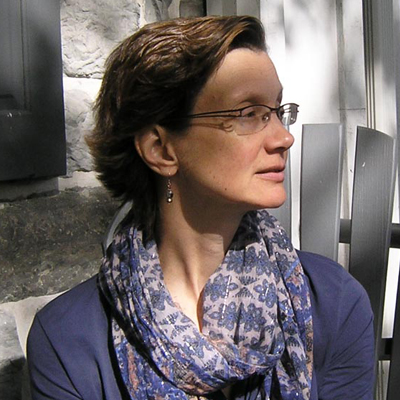Worse Than Awful: Jan’s Story
The Hell Train. That’s what Jan Tukeva calls it. “This awful thing is coming, that awful thing is coming. Your datebook is a calendar of appointments. You go from one dreaded thing to another.”
Tall, lithe, and elegant, 54-year-old Jan Tukeva was diagnosed with triple positive breast cancer, infiltrating ductile carcinoma, stage 1, in January 2012—almost two years ago. A routine mammogram found something suspicious and then the terrible train began rolling, inexorably rumbling ahead.
“I just knew it was cancer. I was positive that I was in trouble.” She couldn’t feel a lump in her breast, and neither could her doctor. Yet, she knew. “I felt sick to my stomach waiting for the final diagnosis. But even then, I held out a little hope,” says Jan, her jean-clad legs folded gracefully in front of her.
Two days later, she was at the radiologist’s office, sitting in a little room with a round table. You didn’t go into that little room with the round table for good news. “It was worse than awful. I thought I was going to die.”
Jan’s long earrings graze the top of the infinity scarf draped around her neck. “But when I met the surgeon, I felt so much better. She addressed me as a person, she addressed the panic. She made me feel that we could beat it together. My doctor gave me hope that I wasn’t dying.”
The four-week wait for her lumpectomy was a tortuous wait, as if a time bomb were in her breast. The port that the doctors inserted in her chest which would receive the chemo medications was a gross indignity she bore for an entire year: a foreign object that seemed to pop out so far that she wore droopy scarves and loose tops—anything to hide it.
And then the chemo started: a triple cocktail of drugs for six rounds, every three weeks for 4 ½ months. Then Herceptin, alone, for another eight months. The surgery was easy compared to all of this.
Jan thought she would go mad. “I needed help. I needed to see someone.” Although she had a large network of family and friends who loved her, who were there for her, she felt so isolated and scared. Really scared. And hopeless. And although her boyfriend said, “In this relationship, when one of us hurts, the other is in pain,” it wasn’t enough.
“I would watch people doing normal things and think, ‘I may never have joy again.’ It’s so devastating to your psyche.”
Jan’s hair fell out. Well, she didn’t wait around for it to fall out. As the first strands began to fall out, she shaved her head. It was her mom’s birthday. Losing her hair was a marker. “Now I felt even more like a freak. Before I lost my hair, I could blend into the wood work. Now everyone knew I had cancer.
“I didn’t want people feeling sorry for me with my hats and scarves. And I didn’t like how much I had to rely on others.” Jan peers into the distance. “I felt as if I did the right things and I got sucker punched.”
She began to see a hospital therapist, and she began to regain her foothold.
And, while she continued to work full time in her family business as a wholesale distributor of newspapers and magazines, every three weeks she missed two days when chemo racked her body. No sooner would she begin to claw her way to a sense of normalcy then it was time for the next round.
Although her therapist suggested that Jan come to the Cancer Support
Community for the Legacy Project, at first she hesitated. She had already come to the Newcomers’ Orientation, but hadn’t returned. She thought she’d prefer individual meetings.
But, for her, the Legacy Project was the lifeline. “It was so meaningful. I didn’t know it would work out this way because you walk into a meeting, all strangers to one another. It’s awkward. But, little by little, people reveal pieces of themselves and you delve into issues together. And at the end of seven weeks, you have made friendships at a different level from any you have ever made. I wish the Legacy Project had gone on for a longer time.”
Jan got a four-week break after chemotherapy before she started radiation every day for seven weeks. This part, happily, was a walk in the park after chemo.
And then, one day, she was done. Her ugly port was removed. All that she had left to do was take one little Tamoxifen pill for at least five years.
Yet, the Legacy Project remained. Jan and two other women became so close that they formed the Mini-Legacy Project that continues to meet monthly at the Cancer Support Community farmhouse. The women walk together, attend cancer fundraisers together, take classes together.
“Meeting peers who totally get what you’re saying is critical. It’s nice to talk to someone who’s been through it. That is one of the things that I got from the Cancer Support Community. It’s been a huge asset for me. These women will be my life-long friends.”
And now Jan, who doesn’t like groups, is taking the Cancer Support Community’s new program, Feeling Good Inside and Out, which focuses on nutrition and exercise. She’s done Tai Chi, and taken cooking and yoga, too.
The future looms bright. In fact, even as she suffered during her months of chemo, she had a sense of hope: she booked a ticket for a blues cruise, a trip she’d always yearned to do but had never gotten around to doing. It was time. “I wanted a reward,” she says with a smile. “And I put money down for something that was over a year away.”
She sails in January.


